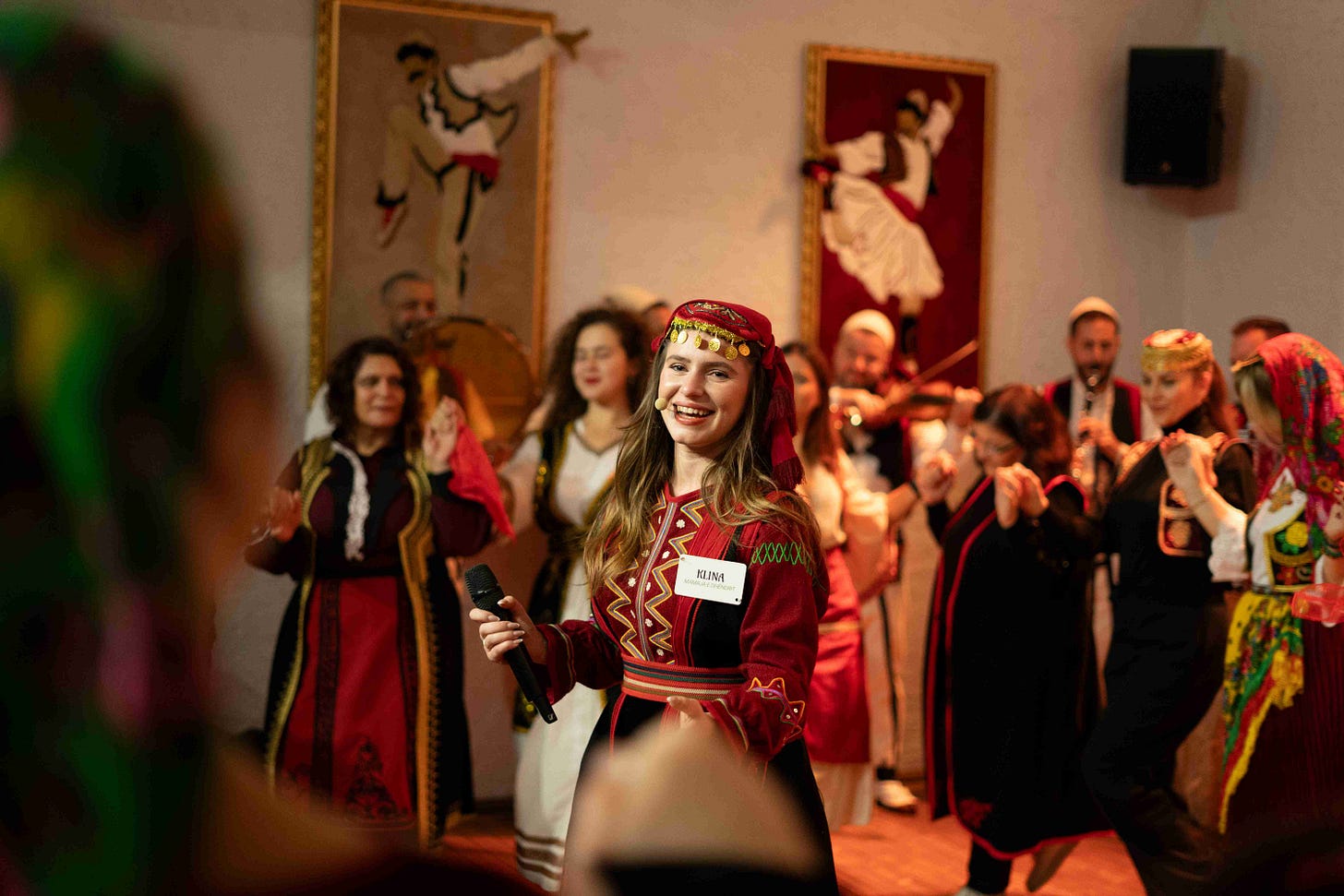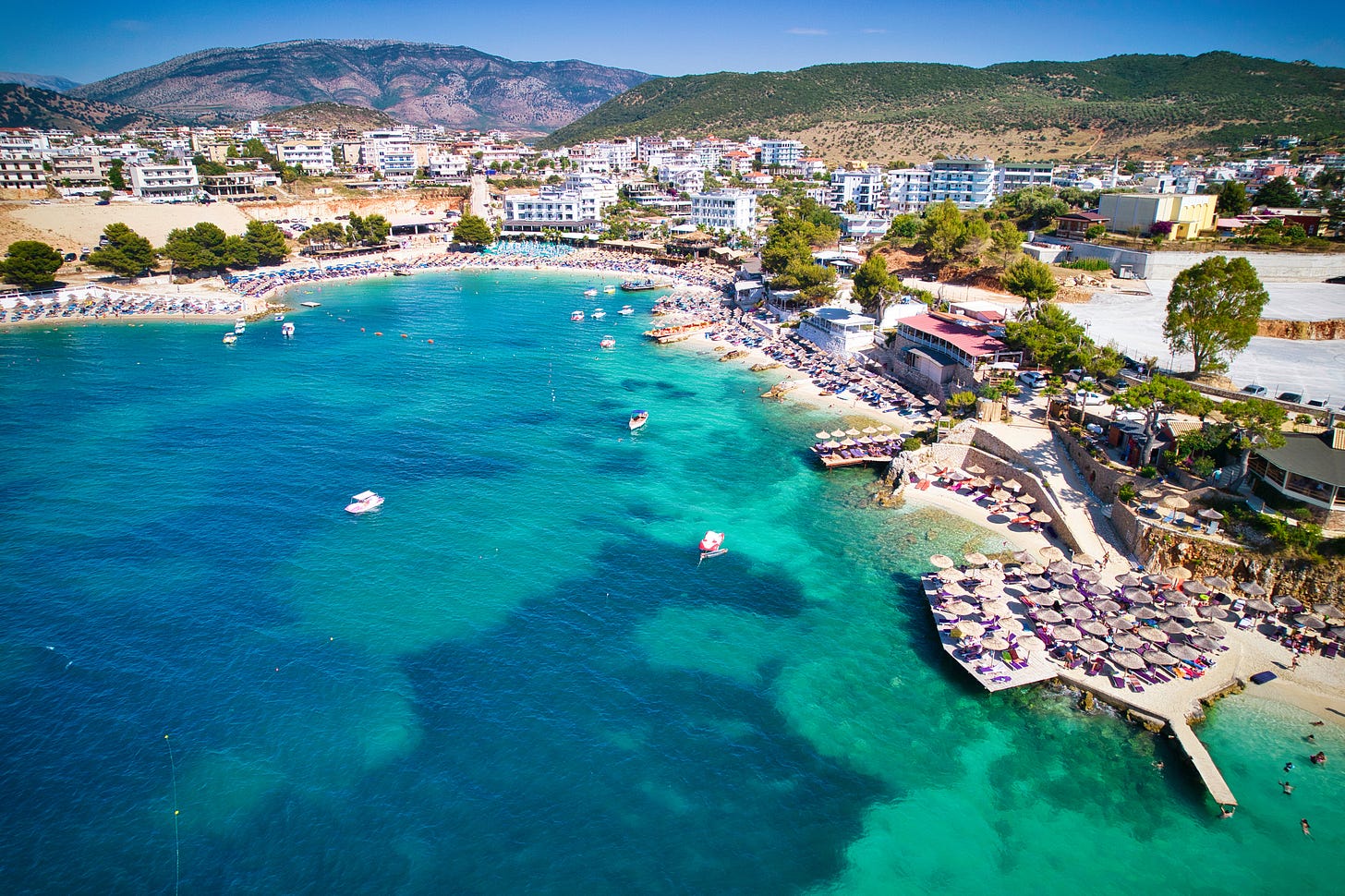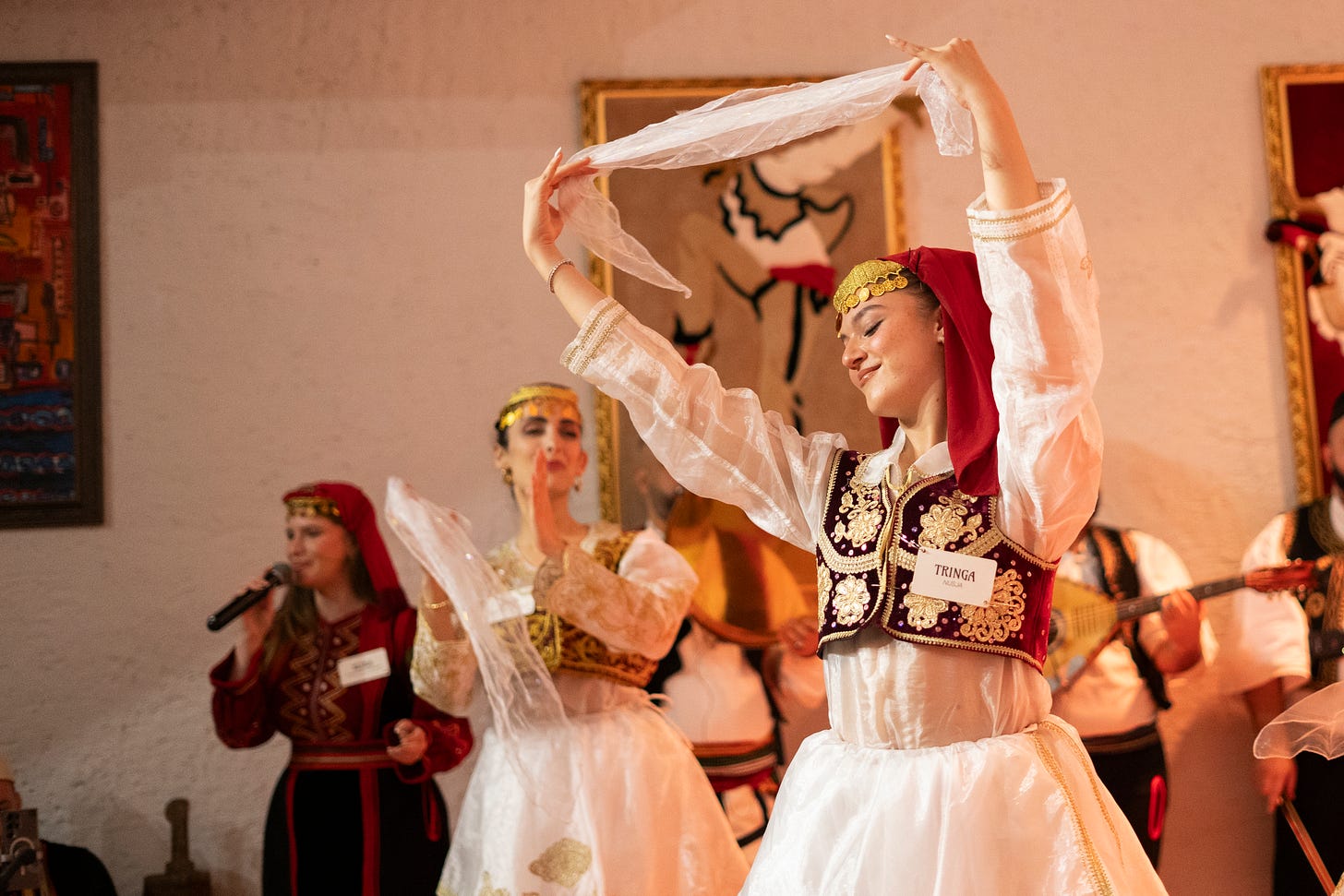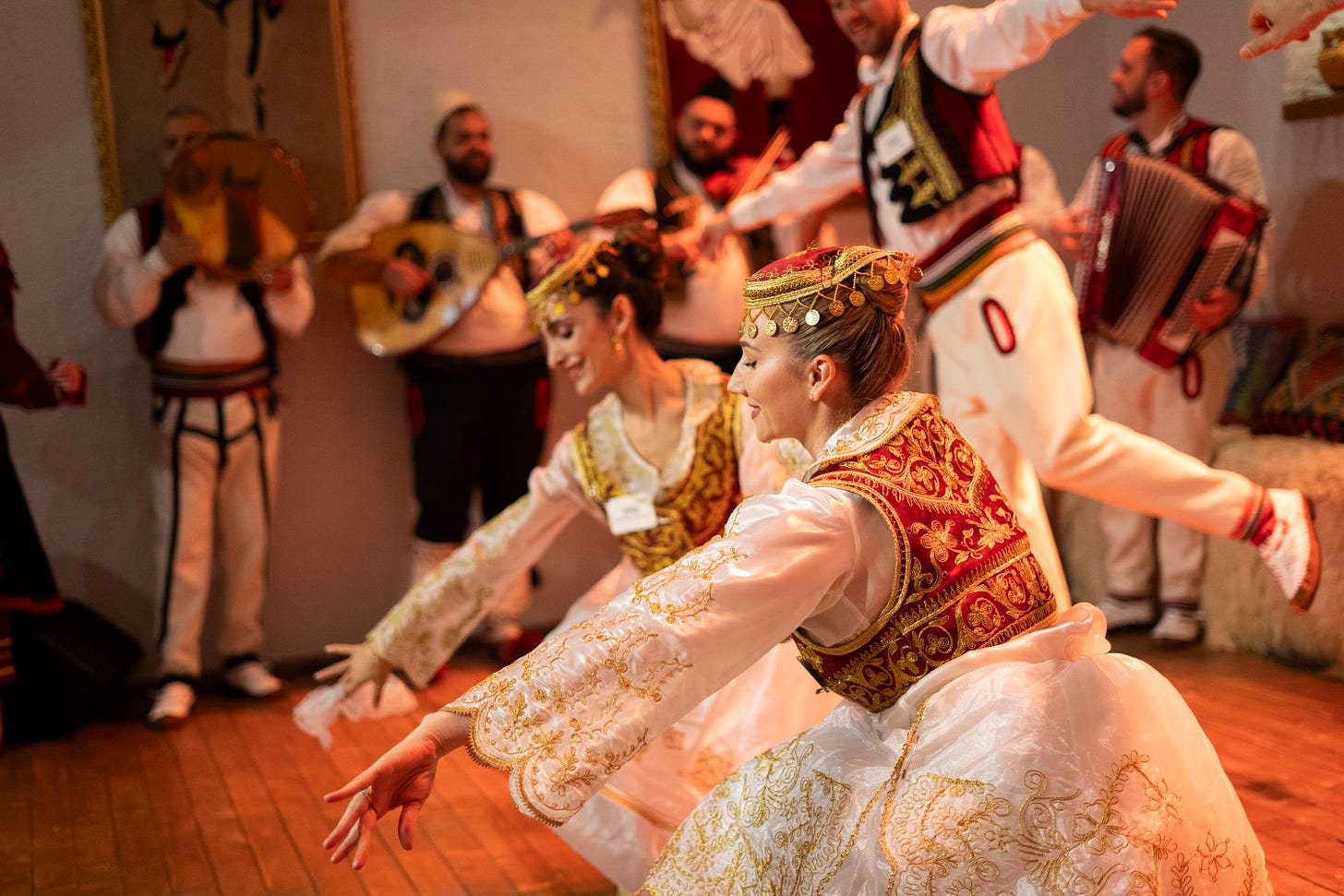How Albania’s Culture of Embracing the Stranger Inspired Me to Open Tirana's First-Ever Ethnocultural Center
Learning about Albania's Jewish history made me realize this country's story is one worth telling a thousand times over
I never imagined when I set out to write “The Secret Jewish History of Albania” over a year and a half ago that it would be published in The Jerusalem Post:
Many might find it difficult to believe that a Muslim-majority country sheltered and saved Jews during World War II; even fewer know that one European country in particular saw a tenfold increase in its Jewish population over the course of the Holocaust.
But such is the story of Albania, a small country in southeast Europe whose unique culture and positioning along the Adriatic and Ionian coasts provided refuge for Jews from persecution throughout the ages…
I wrote the piece for two reasons:
The more I learned about Albania, the more its central ethos echoed what I had learned in my upbringing.
I felt the need to educate my correligionists, most of whom couldn’t fathom how an Israeli Jew would move to a Muslim-majority country.
Especially in the wake of the war, I have found it increasingly difficult to identify as Israeli or Jewish publicly. Tourists and locals always ask where I’m from - I sometimes manage to dupe locals into believing I am a local or a diaspora Albanian, a hilarious notion if you’ve ever heard me speak Albanian for more than thirty seconds.
“Ke fytyrë shqiptare,” they’d say. You have an Albanian face. But after a few more minutes of conversing, the inevitable question would almost always arise: “Je Amerikanë…me origjinë shqiptare?”
And the inevitable nod of the head. Israeli - that explains the Mediterranean features, they’d say, before smiling and wishing me a great rest of my day.
Who Ever Heard of Albania?
I knew nothing about Albania before moving here almost four years ago. In the back of my mind, Albania was an Eastern European country, probably close to Russia, that I would have easily confused for Romania, Bulgaria or any of the other ia’s your garden-variety, oblivious American tourist may mix up.
I’ll never forget the first time I visited and walked through the Grand Park of Tirana and stumbled across its Holocaust Memorial, a quiet yet powerful tribute to the country’s protection of its Jewish population and absorption of Jewish refugees fleeing the Nazi war machine.
A famous teaching from the Talmud adorns the memorial: “He who saves one life, it is as if he has saved the entire world.”
I had read, analyzed and heard this teaching from the Talmud quoted dozens of times over in the course of my studies; seeing it proudly displayed in the capital’s park in three different languages made me realize there was something special about this country.
And the more I learned about Albania, the more I fell in love - particularly when I started to learn about how the Kanun of Lek, Albania’s foremost legal codex governing social hierarchies and the penal system in the country’s northern alpine passes and villages, dictated Albanians treat guests.
As I wrote at length in a previous post, the Kanun obligates Albanians to give their besa, their pledge, to travelers who cross their doorstep. Albania’s foremost legal charter teaches that once a guest has partaken in the host’s bukë dhe kripë, bread and salt, they officially become the host’s charge.
How I Stumbled Upon a Fascinating Albanian-Jewish Connection
“Europe? Isn’t Europe super anti-Semitic?”
Albanians’ obligations towards the foreigner stem from the ancient belief, codified in the Kanun, that:
“Shtëpia është e zotit dhe mikut - The home belongs to God and the guest”
This ancient teaching put guests and wayfarers at the top of the Albanian’s hierarchy of values, obligating them to accept passersby and treat them better than family. Guests in the Kanun are compared to God, and many Albanians believed that guests were oftentimes celestial beings taking on human form to test the virtue of locals; those who accepted them would reap immense rewards, while those who turned them away would suffer terrible consequences.
This teaching is the mirror image of the Biblical narrative of the patriarch Abraham, who was so keen on accepting guests into his home that even after his circumcision, he rushed out into the scorching hot sands of the desert to welcome three travelers into his tent.
The sojourners ended up being angels sent by God to test Abraham. Having passed the divine trial, Abraham and Sarah, 100 and 90, were blessed with the birth of their son Isaac, who went on to bear Jacob and the 12 tribes of Israel.
Not a bad payoff!
Albanians Still Exemplify These Traditional Values
This sense of duty towards the foreigner in distress inspired Albanians to save Jews during World War II - doing everything from hiding them in their basements to adopting them as their own family members to giving them fake passports bearing Muslim names.
Most foreigners visiting Albania can still get a whiff of this spirit of hospitality and warmth. It’s hard not to fall in love with a country full of people who pull you into their homes for a glass of raki, walnuts and freshly baked petulla (pancakes).
This is just one small reason why hiking and visiting the rural corners of Albania is such a distinctive experience - any foreigner trekking his way through an Albanian village will inevitably be pulled into a local’s home and showered with small gifts, smiles and the warmest hospitality they will ever experience in their lives.
The more I learned about Albania - and how proud locals here are of their heritage and history, especially when it comes to saving Jews during the Holocaust - the more I wanted to do something to share it with the rest of the world.
As my time in Albania went on, it became ever clearer that Albania’s future would likely mirror that of Greece: tourism here has been exploding ever since the country opened its doors to the outside world in the 90’s, and in recent years, the trend has only intensified, with tens of millions of foreign visitors descending upon this tiny country that’s suddenly on the tip of everyone’s tongues.
All good and well. This is an incredible country that has much to offer; if you ask me, every traveler should budget a full two weeks to fully experience Albania and its breathtaking natural beauty and rich heritage.
The Problem Facing Albania’s Touristic Landscape
There’s just one problem: most foreigners will never experience Albania’s defining hospitality firsthand. Unless they hike through a remote village or have Albanian friends whose family they visit, most foreigners are unlikely to discover this core aspect of Albanian culture firsthand, a shame for the traveler and a missed opportunity for Albania to share one of the most beautiful aspects of its culture with the world.
Tirana is home, of course, to museums and monuments; but most of them give the visitor a false and warped impression of the country’s history, focusing almost exclusively on the recent communist period, a fascinating and important epoch in Albania’s history, but far from its defining or even most captivating feature.
This is what inspired me and my partners to open Albanian Night, the country’s first-ever ethnocultural center teaching visitors about Albania’s hospitality and intangible cultural heritage.
How Albanian Night was Born
We wanted first and foremost to shift the focus away from communism; since the only currently open museums are Bunk’Art (1 and 2) and House of Leaves, we saw that most visitors were focusing on a forty-five year blip on the historical record that could never tell the country’s whole story.
We therefore opened Albanian Night, almost four months ago, to share with the outside world exactly what Albanian culture is all about: hospitality, warmth and accepting the stranger with arms wide open.
The ethnocultural center offers an eponymous nightly show that showcases the best of Albanian culture and traditions in an extremely interactive and immersive environment. Guests arrive in the evening and don traditional Albanian garb before heading to Oda e Zjarrit, a faithfully recreated traditional room straight out of the Albanian countryside where hosts would greet and entertain guests.
Drawing upon decades of research and academic findings, we recreated a story that took place in the highlands of Albania, showcasing key aspects of rural Albanian life that you can’t experience anywhere else in Tirana.
By reinforcing Tirana’s touristic offerings with an authentic cultural center that teaches them all about Albanian traditions and hospitality, foreigners can still taste the authentic way of living that once dominated in Albania throughout the millennia.
And God must have really wanted us to succeed, because the building we found to house our new project was once home to Albania’s first-ever modern theater, Kinema Gloria. Decades ago, this same space screened the first-ever documentary about Albania, offering audiences a glimpse into the nation’s northern mountain ranges. Now, we’re carrying on that mission by bringing Albania’s untold stories to life for a new generation of travelers.
Experience It for Yourself
For centuries, Albania has been a land of open doors, whether for Jewish refugees fleeing persecution or for modern-day travelers seeking an off-the-beaten-track adventure. The country’s spirit of hospitality is still alive today, from its warm mountain villages to its bustling city cafés. But as Albania rapidly modernizes, this legacy stands to fade into memory.

That’s what inspired us to create Albanian Night: a space where visitors can step into the heart of Albania’s cultural heritage. Housed in a historic building that once screened the country’s first documentary film, it now serves as a place where Albania’s stories, music and traditions come to life. Here, guests experience the customs that have defined Albanian identity for centuries, wearing traditional Albanian clothes, hearing epic tales and witnessing the raw power of iso-polyphony, a sound that has echoed through the mountains for generations.
If you’re coming to or live in Tirana, join us for an evening that will leave you with a deeper understanding of Albania’s cultural heart and experience the words of the Kanun come to life: shtëpia është e zotit dhe mikut.












We don’t need genociders writing about albania